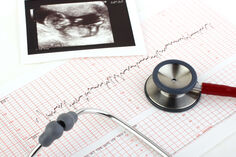Offers
The duties of the company doctor are set out in the Occupational Health and Safety Act (ArbSchG) and the Occupational Safety Act (ASiG) in conjunction with DGUV Regulation 2. Occupational health care is regulated in the Occupational Health Care Ordinance (ArbMedVV) (see below). Further legal bases for examinations can be found in the Radiation Protection Act.
- Occupational health care
- Special examinations in accordance with legal requirements (e.g. Radiation Protection Act)
- Examinations according to BG principles
- Vaccinations
- Workplace inspections with the safety specialists and staff council to recognise and eliminate hazards and safety deficiencies in the workplace
- Workplace counselling
- Individual employee counselling
Types of provisions
In accordance with the ArbMedVV, there are compulsory, optional and optional preventive medical check-ups, which are free of charge for employees and usually take place during working hours.
Mandatory provisions
If compulsory precautions (P) are necessary for a particularly hazardous activity, these are usually carried out before the activity begins and at regular intervals. Participation is mandatory (* see below).
These activities include, for example
- Wet work: wearing gloves > 4 hours a day / frequent hand disinfection
- Risk of infection: Care, examination, handling of infectious/potentially infectious persons or activities with increased risk of injury and infection. Activities with increased risk of injury and infection (e.g. puncture wounds due to hepatitis)
(*) Please note:
In the invitation letter from the company medical service (BÄD), compulsory preventive medical check-ups are marked with (P) . If employees have not fulfilled their obligation to cooperate after being asked twice by the BÄD to take part in a compulsory preventive medical check-up, the employee and the employer will receive a notification that the employee has 'not taken part' in the compulsory preventive medical check-up.
Supply provisions
In the case of pension plans offered as part of a professional activity (A), participation in the pension plan is voluntary. These activities include, for example
VDU work: Office workplace with predominant work on a monitor
Respirators: Offer for employees who are obliged to regularly wear an FFP2 mask due to direct patient contact
Desired provisions
In the case of preventive care , the initiative must come from the employee themselves and be in the context of their workplace (workplace hazards).
Suitability tests
Aptitude tests (fitness tests) may be required by special legislation before individual activities are carried out. These serve to answer the question of whether the existing physical and mental abilities and potential of the employees indicate that they are capable of carrying out the tasks to be performed during their employment. Examples of this are G 41 for work involving a risk of falling and G25 for driving and steering activities.
RECRUITMENT TESTS
In accordance with the applicable collective agreement at Heidelberg University Hospital and Heidelberg University, employees are obliged to have their health checked by a doctor at the employer's request before they are hired.
Functional diagnostics
Functional diagnostics
- Eye tests are offered for employees at VDU workstations, for monitoring activities and for driving company vehicles (including visual field tests if necessary)
- Hearing tests are offered for employees at workplaces exposed to noise.
- Lung function tests are carried out for respiratory protection prevention (e.g. when wearing FFP3 masks).
- ECGs are arranged in accordance with the relevant specifications or by the company doctor.
- Making an appointment
Reports and certificates
The findings are made available to the employee.
External examination findings
External findings can be taken into account according to the doctor's activity profile and decision.


